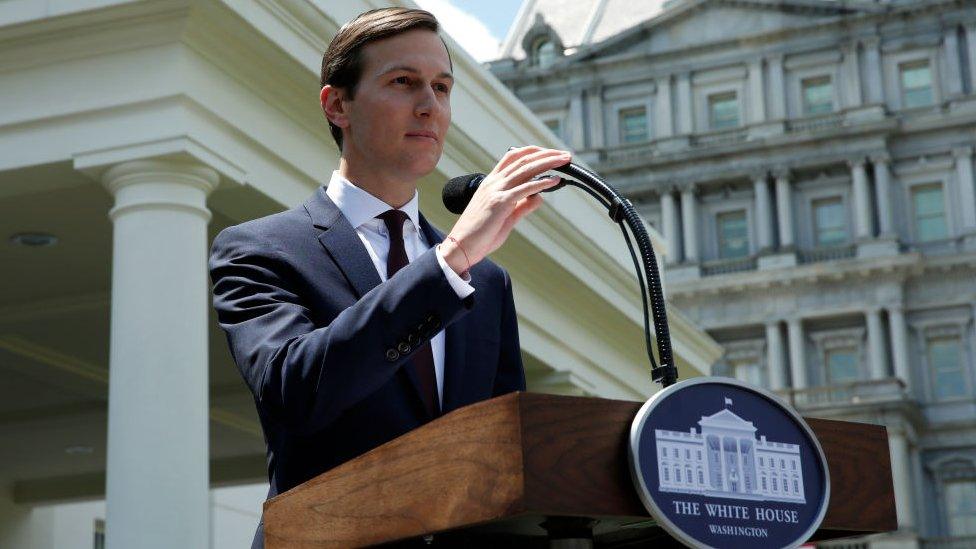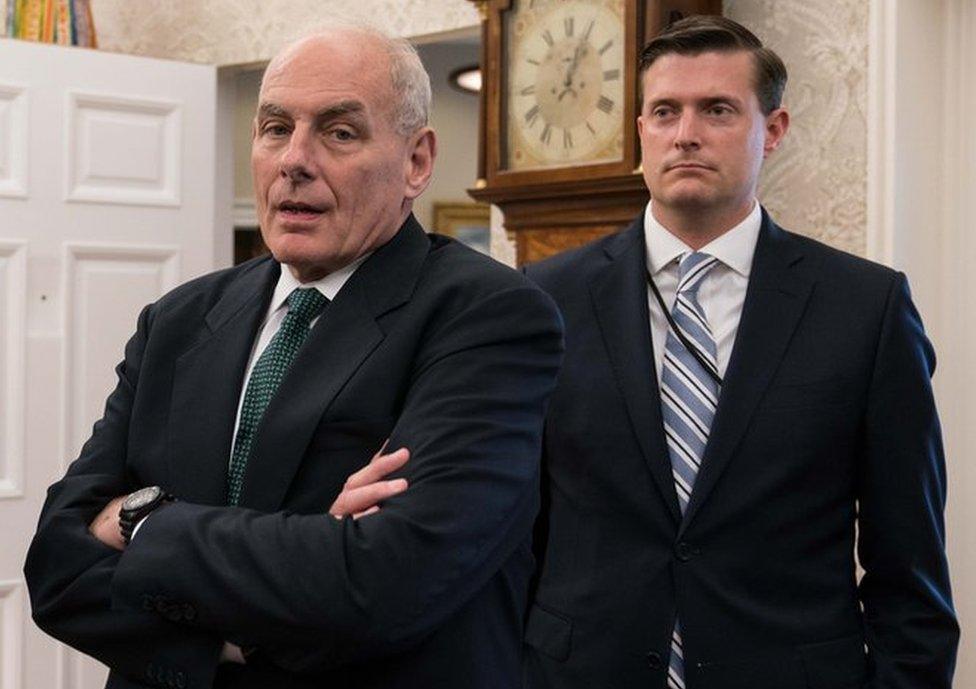Spy chief warns on Trump aides' clearance
- Published
'Access to secret information should be limited'
A US spy chief has warned that presidential aides with interim security clearances should have "limited" access to secret information.
US Director of National Intelligence Dan Coats said the clearance process was "broken" and needs to be reformed.
He was responding to a question about former White House aide Rob Porter, who allegedly beat his wife, and the president's son-in-law, Jared Kushner.
Mr Kushner reportedly has only interim security clearance, like Mr Porter.
Mr Coats was one of several spymasters who gave evidence on Tuesday to the Senate Intelligence Committee about global threats facing the US.
"Sometimes it is necessary to have some type of preliminary clearance in order to fill a slot," the US director of national intelligence said in response to a question from Democratic New Mexico Senator Martin Heinrich.

The 37-year-old is reportedly operating on an interim security clearance
"But if that is the case the access has to be limited in terms of the kind of information they can be in a position to receive."
He told the Senate Intelligence Committee on Tuesday there is currently a government-wide backlog of 700,000 security clearance applications.
"The process is broken, it needs to be reformed. It's not evolution, it's revolution," he said.
White House spokeswoman Sarah Sanders would not confirm the number of staff members who are operating with interim clearances.
"We are following a process that has been used by previous administrations and we would rely on the law enforcement and intelligence communities to determine if that process should be changed," Mrs Sanders said during Tuesday's news briefing.
Mr Coats' testimony comes amid controversy over the interim security clearance granted to Mr Porter, the former White House staff secretary who was forced out last week after two ex-wives told US media he was emotionally and physically abusive to them.
In Tuesday's hearing, FBI director Christopher Wray appeared to contradict the White House's account of when it knew about the allegations against the president's gatekeeper, which he denies.
'The US is under attack,' the US spy chief said of cyber threat
Mr Wray said the bureau notified the White House about problems in Mr Porter's background check in March last year.
That is months earlier than the White House said it received the information.
Mrs Sanders later disputed the FBI timeline, saying that the background check had not yet been completed.
Mr Wray also said the FBI delivered the final results in January of its background investigation into Mr Porter.
But the White House said last week that Mr Porter's background investigation was "ongoing" at the time he quit.
The White House is also facing questions about presidential adviser Mr Kushner's access to classified material.

White House Chief of Staff John Kelly (L) has come under fire for defending Rob Porter (R)
Despite his lack of a full security clearance, Mr Kushner is able to read the President's Daily Brief, a top secret intelligence report that Mr Trump himself does not bother to read, according to reports.
Mr Kushner is one of dozens of White House employees still awaiting permanent clearance, according to the Washington Post, external.
His lawyer, Abbe Lowell, said the 37-year-old's application is taking longer than usual "because of the extent of his holdings, travels and lengthy submissions", according to the newspaper.
The wealthy New York real estate developer has had to refile the national security questionnaire required of all prospective White House employees after making a number of omissions.
Last October, the head of the National Background Investigations Bureau told Congress he has "never seen that level of mistakes" on any security clearance application.